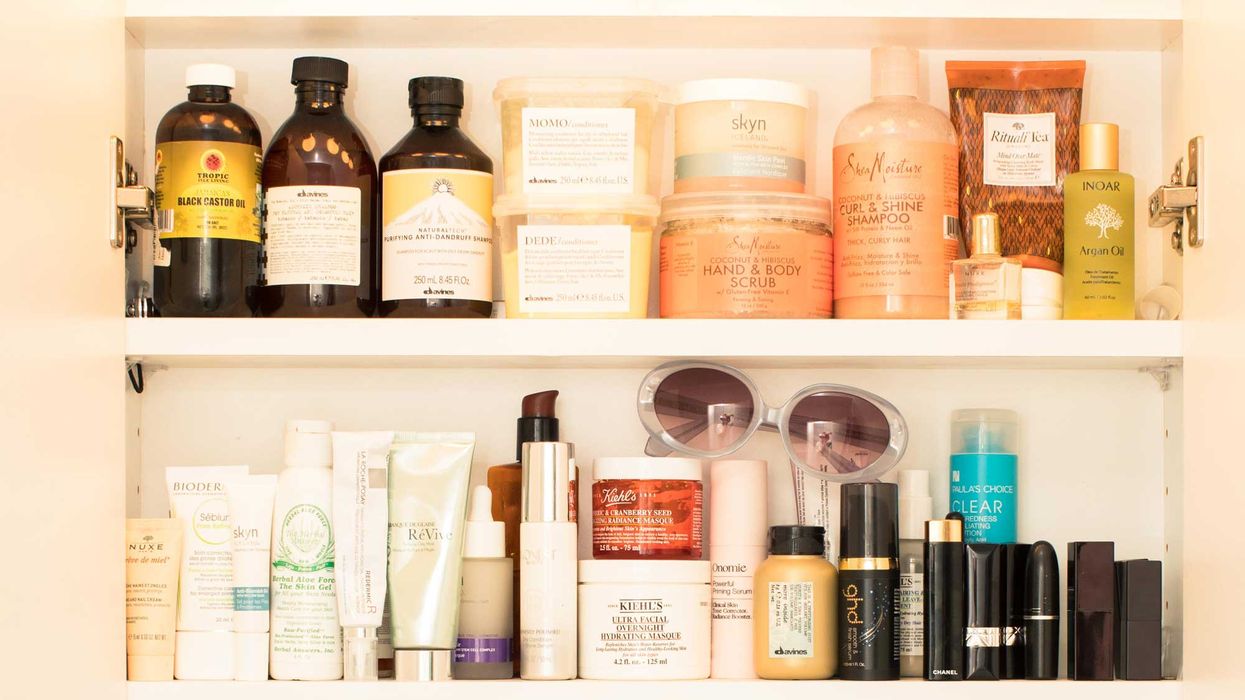Beyond Parabens: The New Frontier of Preservatives
What’s safe, and what’s marketing hype?

Even if you’re not 100 percent dedicated to a clean and green beauty regimen, you’ve likely encountered products that boast “no parabens” on the bottle. Emphasizing a lack of parabens is a major marketing ploy at the moment, as the natural cosmetics market consistently grows year after year and is expected to reach a value of $34.12 billion dollars by 2025. But, despite consumers’ increased interest, there is still no universal industry standard when it comes to “clean” formulation, which is why slapping a giant label on the side of your shampoo bottle to prove that it doesn’t have parabens is usually seen as more important than emphasizing what it does contain. Not to mention there is a major disconnect between some brands and the scientific community, which recognizes that (despite what the general public does or does not understand) parabens are not quite the toxic substance they have been made out to be. So where does that leave us?
Well, as a refresher, let’s recall what parabens do for our products. They’re a type of synthetic preservative that helps keep your various creams and gels shelf-stable. Fungus, yeast, and bacteria love a warm, wet environment, making your favorite tub of moisturizer a prime location for these little microorganisms to invade. Parabens are added to prevent that type of contamination from happening and therefore protect you from potential infection. Great! So what is all the fuss about? Dr. Dhaval Bhanusali, dermatologist and laser surgeon, explains: “The main worry [regarding parabens] refers to previous studies that found parabens in the breast tissue of breast cancer patients. The belief is that by mimicking estrogen, they could cause endocrine disruption.” However, he notes that the study found no causal relationship between parabens and breast cancer, but their presence brought a significant amount of attention to the ingredient.
Ee Ting, the founder and formulator behind Hop & Cotton, points out that, aside from the fact that some of the earlier studies regarding parabens incorrectly drew the conclusion that parabens are carcinogenic, many people may not be aware that parabens are naturally occurring in many plants, like honeysuckle, blueberries, and carrots. That’s why it’s not necessarily surprising for parabens to be found in our tissues or bloodstream. “To assess if any ingredient is harmful, we have to consider it in context,” she says. “Water in excessive amounts can drown us; parabens or preservatives in concentrated forms are irritating because of their innate ability to kill microorganisms. However, the typical final concentration in beauty products is usually less than one percent, which should not be cause for concern. They are the oldest preservatives used in the history of cosmetics and have one of the lowest allergenic rates amongst cosmetic ingredients.”
If you’re not sure if your products contain parabens, you can check the label for any of these common types: methylparaben, ethylparaben, propylparaben, butylparaben, isopropylparaben, and isobutylparaben. Different categories of products, from hair, skin, and makeup, contain different kinds of preservatives, as their formulations vary widely. But as our experts explained, their sheer presence should be less of a cause for alarm than their percentage. A lower percentage will cause less irritation; however, as Ting points out, layering multiple products is essentially adding more and more preservatives onto your skin and can increase your risk of irritation. “Even if a product is extremely mild, every product you use deposits more preservatives on your skin. This extends to all ingredients, not just preservatives. Layering too many products has a cumulative effect on the skin, no matter how clean each formula is.”
In the wake of the call for fewer parabens, however, there is a new crop of preservatives stepping forward to take their place. Some, as cosmetic chemist Ron Robinson of BeautyStat explains, are natural preservatives, “like organic acids—levulinic, sorbic, and benzoic acids.” Others, like methylisothiazolinone, can be incredibly irritating and cause a host of sensitivity reactions, according to Dr. Bhanusali. However, he explains that “the general consensus among most dermatologists is that parabens, used at very low concentrations, tend to be well tolerated and have a minimal risk profile.” The trade-off is to have zero preservatives at all, which some smaller brands may very well attempt with their products, but you’re much more likely to experience a negative reaction or infection from mold or bacterial growth.
Rather, formulators and doctors are encouraging the public to remain educated about their products and pay attention to labels to ensure their safety. Says Robinson, “Consumers need to understand that most beauty products are tested to make sure that they don’t grow bacteria, but this does not last forever. And because [the FDA does not require] beauty products to have expiration dates, consumers should note that they should toss their products out after six to twelve months depending on the type of product.”
And if you’re still on the lookout for the cleanest, greenest products possible, the beauty industry tends to agree that you should buy items that are free of parabens, phthalates, sulfates, synthetic fragrance, and formaldehyde. But as always, test out new products one at a time to see if your skin has a reaction, and note the date that you open your jar or tube so you can throw it away before you risk any contamination. We know it’s painful to toss that barely touched mascara, but in this case, it’s better to be safe than sorry.
Want more stories like this?
Our 24 Must-Have Hair Products
The Way You Sleep Is Probably Damaging Your Skin
Once and for All: How Long Do You Beauty Products Last?